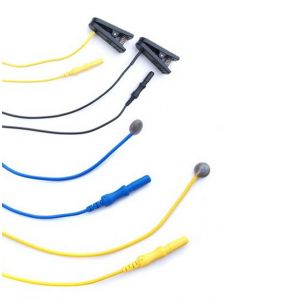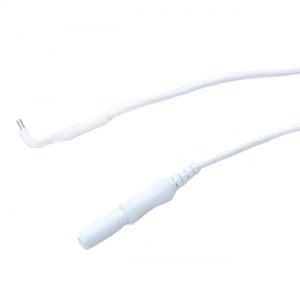We use cookies to make your experience better. To comply with the new e-Privacy directive, we need to ask for your consent to set the cookies. Learn more.
Accessories
- Physiological Psychology Online Didactic CourseThe Physiological Psychology online didactic course fulfills BCIA’s Human Anatomy and Physiology requirement for neurofeedback certification. Once purchased you will receive access with 1-2 business days. Learn Morewas $150.00 Special Price $135.00
- Human Physiology Online CourseHuman Physiology satisfies BCIA's anatomy and physiology requirement for biofeedback certification or provides 45 hours of biofeedback recertification credit. Learn Morewas $150.00 Special Price $135.00
- Psychopharmacology Online CourseThis self-paced BCIA-accredited Psychopharmacology online didactic course for Biofeedback and Neurofeedback professionals. This course may be used to satisfy 45 of 48 hours of continuing education for Biofeedback or Neurofeedback recertification. Learn Morewas $150.00 Special Price $135.00
- Electro-Cap Tin Ear Electrodes Small Cups - 6mmElectro-Cap Tin Ear Electrodes, 6mm earclips (2/pkg). A pair of pure tin cup electrodes with a 48" (122 cm) lead wire and a 1.5mm DIN connector. A spring-clip back, covered with plastic for patient comfort, is used to hold the electrode in place. For use with Electro-Caps, Smart Brain Games and other systems that use tin ear electrodes Part # ECA E5-6S Learn More$34.95 As low as $34.25
- DC-EEG Monopolar/Bipolar KitThis EEG lead kit allows users to make either monopolar or bipolar single channel measurements. 1.5 mm DIN Connector to disc. Sintered silver/silver-chloride (Ag/AgCl) EEG electrodes and ear clips for DC and low frequency EEG applications. Cable is appox 40" in length. Learn More$215.00
- EEG-Z3 SensorEEG-Z3 is a pre-amplified electroencephalograph sensor with built in impedance checking and 3 modes of operation: regular EEG mode (above 2 Hz), low frequency mode (above 0.01 Hz) for evoked potentials (EP) and low frequency applications and DC mode for true DC operation (above 0 Hz) for slow cortical potentials (SCP). Learn More$595.00
- E4S Electro-Cap Quick Insert ElectrodeThe E4S Quick insert electrode is a temporary electrode which will override the cap wiring in the event of a faulty electrode during a test. A Quick Insert Electrode may be placed into the mount of the faulty electrode and connected directly to the EEG machine until the cap can be properly repaired. Learn More$15.95 As low as $15.63








